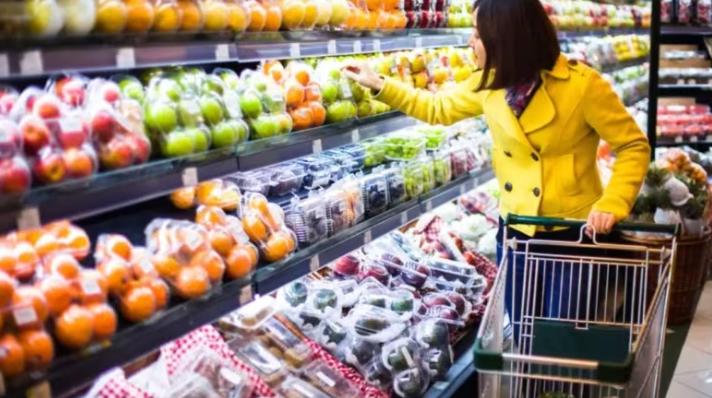Canada’s inflation rate cools to 4.3% in March

Bank of Canada is forecasting rate to hit 3 per cent in a few months
Canada’s inflation rate decelerated to 4.3 per cent in March, down from 5.2 per cent the previous month and also down to the lowest level since August of 2021.
The cooling of the inflation rate was in line with what economists were expecting.
Statistics Canada reported Tuesday that gasoline prices fell by 13.8 per cent in the year up to March, which is the fastest decline in the price of gas since July of 2020. But that decline comes from an abnormally high bar, as March 2022 saw pump prices spike because of the Russian invasion of Ukraine.
While the overall inflation rate decelerated, the cost of carrying a mortgage was a major factor pushing up the cost of living, as mortgage interest costs rose by 26.4 per cent in the year up to March.
“This was the largest yearly increase on record as Canadians continued to renew and initiate mortgages at higher interest rates,” the data agency said.
Food prices decelerating
Food prices, which have spiked at their fastest pace in decades this year, are showing some welcome signs of decelerating, but are still going up at a pace that’s more than twice as fast as the overall inflation rate.
- How does increasing interest rates actually help curb inflation?
The data agency reported that food prices went up at a 9.7 per cent pace in the year up to March, a slowdown from the 10.6 per cent pace seen the previous month.
Price increases for fresh produce are slowing down, with fresh fruit increasing by 7.1 per cent and vegetables by 10.8 per cent, respectively. Both those figures are down from 10.5 and 13.4 per cent the month before.
That slowdown is welcome news to consumers, who have had to stretch every dollar to put food on the table this year.
Hannah Estabrook is a volunteer at The Grainery Food Cooperative in Halifax, a non-profit that helps bring down the price of food for members.

“We order food in bulk from a number of local suppliers and then we resell it to the public at the lowest price possible,” she told CBC News in an interview.
She says food co-ops like The Grainery have become popular of late because they provide consumers with an alternative, especially in smaller markets where there is often just one major grocery store.
“People don’t have a choice not to purchase food from those grocery stores,” she said.
The co-op model has worked well for the food scene in Halifax, and she says it’s a model that could work in other locations — and even parts of the economy.
“It’s a really wonderful model, and definitely part of why The Grainery exists is also to spread awareness about co-operatives as an alternative to for-profit businesses,” she said.
Overall inflation is coming down
Royce Mendes, an economist with Desjardins, says it’s too soon for households to hope that prices will start declining, but there are growing signs that the pace of price increases are settling down, at least.
“The slowdown in the year-over-year rate was the result of base effects, with a very large monthly increase falling out of the annual calculation,” he said. “But with total prices rising yet again in March, the deceleration in headline inflation will come as cold comfort to Canadian consumers who have seen prices rise by 14 per cent in the three years since the month the pandemic began in March 2020.”
Related News
Trade war, slumping border traffic: What does that mean for the Gordie Howe bridge?
Amid U.S. President Donald Trump’s tariffs which have triggered a trade war with Canada, cross-border trips haveRead more
Trump administration threatens Harvard’s foreign enrolment, tax-exempt status
U.S. Homeland Security Secretary Kristi Noem speaks during an event on April 9, in Washington,Read more
